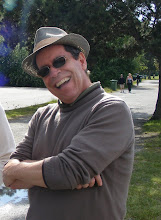The Belgian Congo achieved independence on June 30, 1960 under the nationalist leadership of Patrice Lumumba of the the "Mouvement National Congolais" or MNC Party. The new African nation initially took the name "Republic of Congo", changing it to "Democratic Republic of the Congo" in 1964 to distinguish it from the former French Congo which also took the name "Republic of Congo".
June 30, 1960 marked the end of a long colonial period that included the brutal "Congo Free State", a private holding of King Leopold II of Belgium, and the "Belgian Congo", a slightly more enlightened arrangement overseen by the Belgian parliament.
These words from newly elected Prime Minister Patrice Lumumba expressed the hope of the fledgling nation.
"The Republic of the Congo has been proclaimed, and our country is now in the hands of its own children.
Together, my brothers, my sisters, we are going to begin a new struggle, a sublime struggle, which will lead our country to peace, prosperity, and greatness.
Together, we are going to establish social justice and make sure everyone has just remuneration for his labor.
We are going to show the world what the black man can do when he works in freedom, and we are going to make of the Congo the center of the sun's radiance for all of Africa...
We are going to do away with all discrimination of every variety and assure for each and all the position to which human dignity, work, and dedication entitles him.
We are going to rule not by the peace of guns and bayonets but by a peace of the heart and the will ." Patrice Lumumba June 30, 1960
Unfortunately, the end of Belgian colonialism did not mean the end of troubles for the Congolese people. Tribal infighting, cold-war politics, resource conflicts, dictatorships, and civil war have plagued the "Democratic Republic of the Congo" from day one to this very day.
Today we mark the 50 year anniversary of the formation of the "Democratic Republic of the Congo". In so doing we remember the oppressive era of colonial Africa, the great African independence movement of the 1960's, and the ongoing struggle for peace, freedom and unity faced by so many African nations today.
Remembering and reflecting... Rob; in Vancouver
"The Congo's independence marks a decisive step
towards the liberation of the entire African continent."
Patrice Lumumba





























